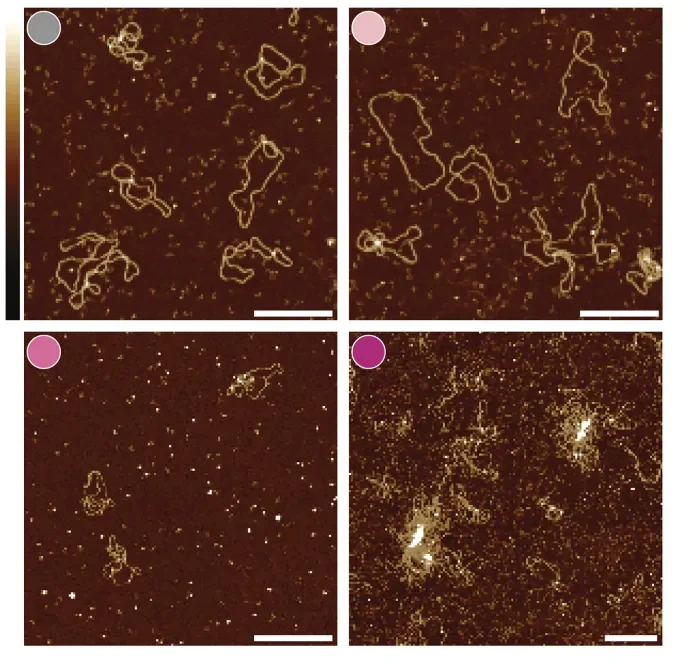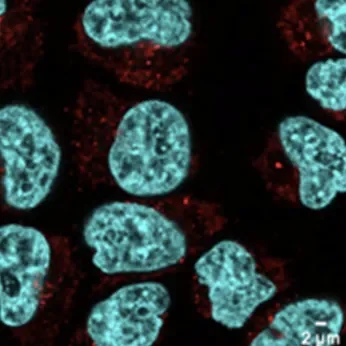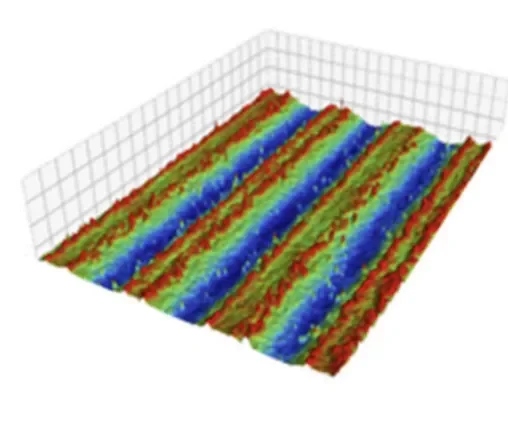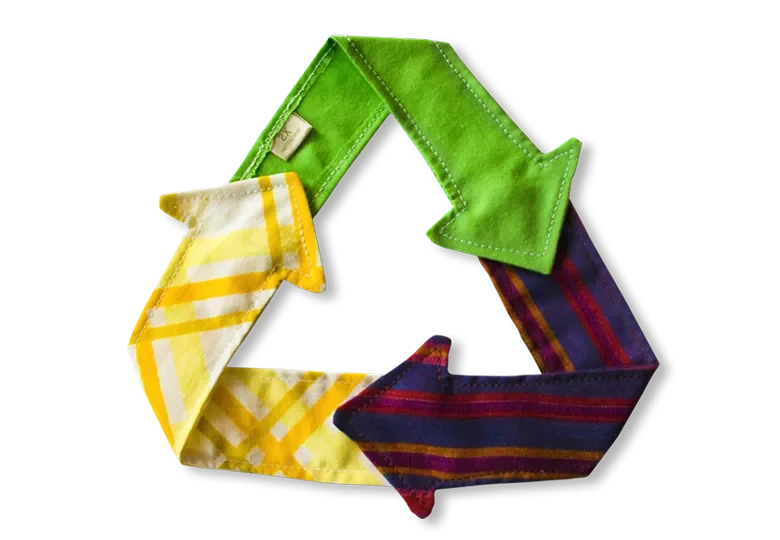
Chemical Sciences Research
The School of Chemical Sciences houses a suite of state-of-the-art research equipment including high resolution electron microscopy and a range of both mass and magnetic resonance spectrometers. It is one of the most successful Chemistry Schools in Ireland for attracting large-scale research funding, with our researchers having significant roles within a number of recently established, nationally significant research centres, including pharmaceutical science, biomedical diagnostics, biofermentation process analysis, separation science, and marine monitoring.
The School of Chemical Sciences is a research intensive department with three primary themes (T1 - T3) that span key areas of research of national and international significance. These include climate and environmental research, nanomaterials and devices, and therapeutics and diagnostics. Underpinning these three themes lies core academic expertise in the areas of synthetic, medicinal, physical, nanomaterials, bioinorganic, and analytical chemistry. Click here to find out more: Research Themes
A Culture of Collaboration — Locally and Globally
At DCU’s School of Chemical Sciences, collaboration is at the heart of everything we do. Our researchers work across disciplines and borders, partnering with hospitals, industry leaders, environmental agencies, and world-class universities to solve real-world problems and accelerate scientific discovery.
We’re proud to be part of major national research centres like SSPC (SFI Research Centre for Pharmaceuticals), CÚRAM (Medical Devices), and iCRAG (Geosciences and Climate), giving our students access to cutting-edge facilities, industrial placements, and research-informed teaching. Our staff regularly co-publish with clinicians, engineers, and environmental scientists, and our students benefit from this rich, interdisciplinary environment.
Internationally, our researchers lead EU-funded Marie Skłodowska-Curie networks, such as ClickGene and NATURE-ETN, working with partners across Europe in areas like gene-targeted therapeutics and DNA nanotechnology. Through these programmes, DCU students collaborate with peers in top universities and research institutes from Germany, Spain, Italy, Sweden, and beyond.
Closer to home, we work with organisations like Irish Water, the EPA, Teagasc, Intel, Pfizer, Eli Lilly, and the Rediscovery Centre, ensuring our science has both academic and societal impact. Our collaborations don’t just stay in the lab, they help inform policy, improve public health, drive innovation in industry, and contribute to environmental resilience.
The School of Chemical Sciences at DCU produces high-quality research across synthesis, materials, analysis, and chemical biology. This section highlights recent peer-reviewed publications from our team, reflecting our commitment to impactful, collaborative science and the training of future researchers.
World-Class Research, Backed by Major Investment
At DCU’s School of Chemical Sciences, our research is powered by some of the most competitive and prestigious funding bodies in Ireland and Europe. This means our students and researchers work at the forefront of global discovery, tackling cancer, climate change, pollution, and advanced diagnostics, all within a dynamic, well-supported environment.
Our researchers are supported by major funding from Science Foundation Ireland (SFI), which has invested in cutting-edge work on sustainable chemistry, biomedical devices, and next-generation therapeutics. Projects such as Professor Andrew Kellett’s EU-funded Marie Skłodowska-Curie Innovative Training Networks (valued at €4 million each) offer students the opportunity to train as part of international research teams, collaborating with global experts.
We also lead large-scale environmental initiatives supported by the Environmental Protection Agency (EPA) and SFI, such as the IMPACT and QUEST projects, which are helping shape Ireland’s clean water and climate strategies. Students working with Professors Fiona Regan and Brian Kelleher gain hands-on experience using advanced sensors and real-world data to monitor environmental change.
Our academics have also won prestigious Irish Research Council (IRC) Laureate Awards, and several researchers recently secured over €1.5 million from the SFI National Challenge Fund, funding designed to address urgent societal challenges.
Being part of DCU means joining a research culture that’s not only ambitious and collaborative, but also exceptionally well-resourced. Whether you're interested in sustainable technologies, pharmaceutical innovation, analytical chemistry, or materials for space exploration, you’ll find opportunities here to get involved in meaningful, funded research from day one.
This strong funding track record ensures our students are trained in an environment of excellence, equipped with the tools, mentorship, and global partnerships needed to make a difference, in Ireland and beyond.
Research Impact at the School of Chemical Sciences, DCU
DCU’s School of Chemical Sciences is tackling global challenges with advanced solutions in health, environment, diagnostics, sustainability, renewable energy, and space science. These expanded profiles illustrate the depth and influence of our research, supported by recent publications and media attention.
Precision DNA‑Targeting Therapeutics
Professor Andrew Kellett’s group has engineered a novel class of dinuclear copper complexes assembled via click chemistry, most notably Cu₂‑BPL‑C6. This compound binds AT-rich DNA sequences with high specificity and induces double-strand breaks in aggressive cancer cell lines. Mechanistic studies reveal that these complexes exploit cellular copper transport systems, minimising off-target toxicity. Current efforts include in vivo xenograft models, evaluation of immune responses, and structure–activity relationship screens to further refine binding specificity. This work marks a paradigm shift towards gene-targeted chemotherapy.
Advanced Photochemical Imaging and Diagnostics
Professor Tia Keyes develops ruthenium and osmium luminescent probes tuned for cellular oxygen and stress sensing. Her tools incorporate tunable ligands for selective imaging of tumour microenvironments and mitochondria. Recent collaborations with biomedical engineers have led to multimodal platforms that combine optical sensing with electrochemical feedback, enabling high-throughput antiviral drug screens. In 2024 alone, her lab published three articles exploring stress-granule formation and probe photostability, and federal grants are now supporting clinical validation trials in oncology.
Marine Carbon & Pollution Analytics
Associate Professor Brian Kelleher directs QUEST, a €1 million initiative combining geochemistry, microbiology, and modelling to map coastal carbon sinks and pollutant fates. His team deploys sediment core profiling, isotopic tracers, and in situ sensors along Dublin and Galway coasts. Their results indicate that carbonate-bound “blue carbon” could offset up to 15% of Ireland’s emissions budget. The project also includes an open-access data portal and engagement with coastal communities to support climate commons.
Water-Quality Sensors & Policy Influence
Professor Fiona Regan’s lab designs high-affinity polymeric and molecularly imprinted sensors for pharmaceuticals, PFAS, pesticides, and conducting samplers deployed in lakes and estuaries. Their devices are integrated into a national monitoring network, generating time-stamped pollutant profiles at hourly resolution. Regan’s team pioneered a “lab-on-buoy” platform combining electrochemical and optical sensors, which has since been incorporated into the EPA’s water safety protocol. Their findings influenced 2024 EU guidance on pesticide threshold limits and microplastic monitoring standards.
Wearable & Lab‑on‑Chip Diagnostics
Associate Professor Aoife Morrin’s research spans flexible microfluidics embedded in epidermal “tattoo” patches for real-time skin metabolite analysis, to portable lab-on-chip devices used in field diagnostics of water-borne pathogens. Her team has developed non-invasive glucose and lactate sensors calibrated in diabetic patient trials, and is advancing multiplexed chip arrays capable of simultaneous detection of heavy metals and bacterial toxins. Educational contributions from LMorrin's lab include open-source hardware kits used in high school STEM outreach, recognised by the national DELTA Award.
Sustainable Biocatalysis & Circular Chemistry
Dr Kieran Nolan’s team engineers thermostable enzymes and deep eutectic solvent systems in continuous flow reactors for the valorisation of biomass and plastic precursors. They recently demonstrated enzyme-mediated depolymerisation of PET waste under mild conditions, producing precursor monomers with >90% yield. Nolan’s lab is now developing hybrid chemo-enzymatic pathways for lignin conversion into renewable aromatic compounds. The research is commercialised through a spin-off company piloting small-scale reactor modules for onsite plastic recycling.
Smart Carbon Nanomaterials for Medicine
Professor Silvia Giordani’s carbon nano-onions are functionalised with folate and peptide ligands to achieve targeted cancer cell uptake. In vitro assays show >70% uptake in breast-cancer-derived cells and minimal off-target internalisation. Her group investigates nanoparticle-drug conjugates released under near-infrared stimulation, enabling on-demand chemotherapy activation. Animal model studies are underway, with plans to file for first-in-human trials. This approach offers a refined balance of potency and safety in oncological treatments.
Prebiotic Chemistry & Origins of Life
Associate Professor Seán Jordan’s ProtoSigns Lab reconstructs protocell formation under early Earth conditions using wet–dry cycles and mineral‐mediated polymerisation. His team has characterised ribozyme evolution within synthetic vesicles, demonstrating primitive self-replication. Collaborations with iCRAG have enabled controlled experiments simulating volcanic island environments. Jordan’s group is tracking biosignature degradation patterns to inform upcoming astrobiology missions.
Renewable Energy & Antimicrobial Photochemistry
Professor Mary Pryce designs porphyrin- and ruthenium-based complexes capable of dual-function photochemistry: hydrogen evolution for solar fuel production, and controlled CO release for antimicrobial activity. Her team demonstrated a CO release rate of 0.6 µmol/min under 430 nm irradiation, effective against MRSA cultures. Current projects explore hybrid systems combining CO with nitric oxide donors for synergistic antibacterial properties.
Nanostructured Surfaces for Space & Biomedicine
Associate Professor Susan Kelleher's nano- and micro-patterned polymer coatings were sent aboard the HAKUTO-R rover to examine lunar-dust adhesion under low gravity. Although contact was lost shortly before touchdown, the coatings underwent rigorous dust-simulation testing on Earth, revealing their potential to resist particulate accumulation—an insight now driving glucose-resistant coatings for medical devices and aerospace applications. Her work is cited in the Irish Times, Silicon Republic, RTÉ, and Irish Examiner.
INTERNATIONAL MENS DAY

International Men's Day 2024
The School of Chemical Sciences has a fantastic number of male staff and postgraduate students, who carry out excellent science, lead incredible research groups, help support dozens of research and teaching labs, teach at every single level of our undergraduate degree programs, act in leadership roles across the University (and on the international stage)......the list of their contributions goes on. They act as role models for all who interact with them, and we genuinely know our School wouldn't be the same without them.
To celebrate this International Mens Day, we have selected a number of cutting edge research papers published this year, which are led by male Principle Investigators in the School, involve male team members, and were only possible with the help from male technical support in the School, and further afield. Check them out below!




